ZONDO REPORT, ONE YEAR LATER
State Capture 2.0: The corruption warning lights are flashing on the SA political patronage system
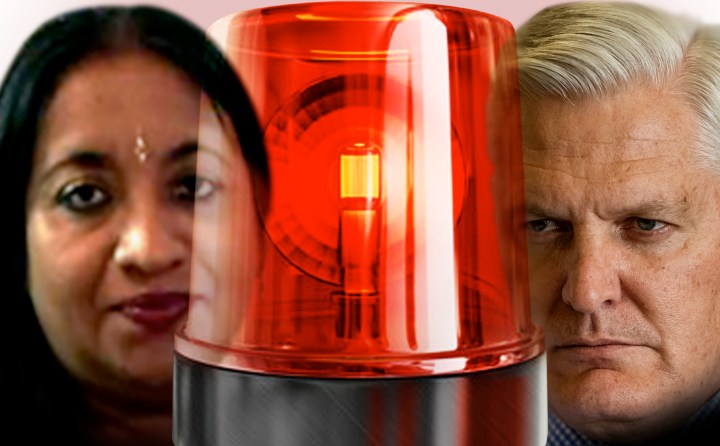
Hopes that the work of the Zondo Commission of Inquiry into State Capture would signal the end of corrupt politicians and government officials’ free-for-all are fading fast – and with good reason.
In a corruption-weary country in which the millions and billions we lose have transmogrified into so many zeroes that they no longer have meaning, it is tempting to write off the State Capture Commission with a shrug of the shoulder indicating a “waste of time”.
That would be a mistake. The commission, led by its chairperson, now Chief Justice Raymond Zondo, has put flesh on the bones of the idea of State Capture. Its excavation represented in 5,500 pages of findings is an anatomy and a language we use to highlight further instances and understand the patterns. As Paul Holden writes in his book Zondo at Your Fingertips (Jacana, 2023), it “created a political reality that cannot be obscured or denied”.
The commission described State Capture as a political “project” and it placed the governing ANC at the apex of that project.
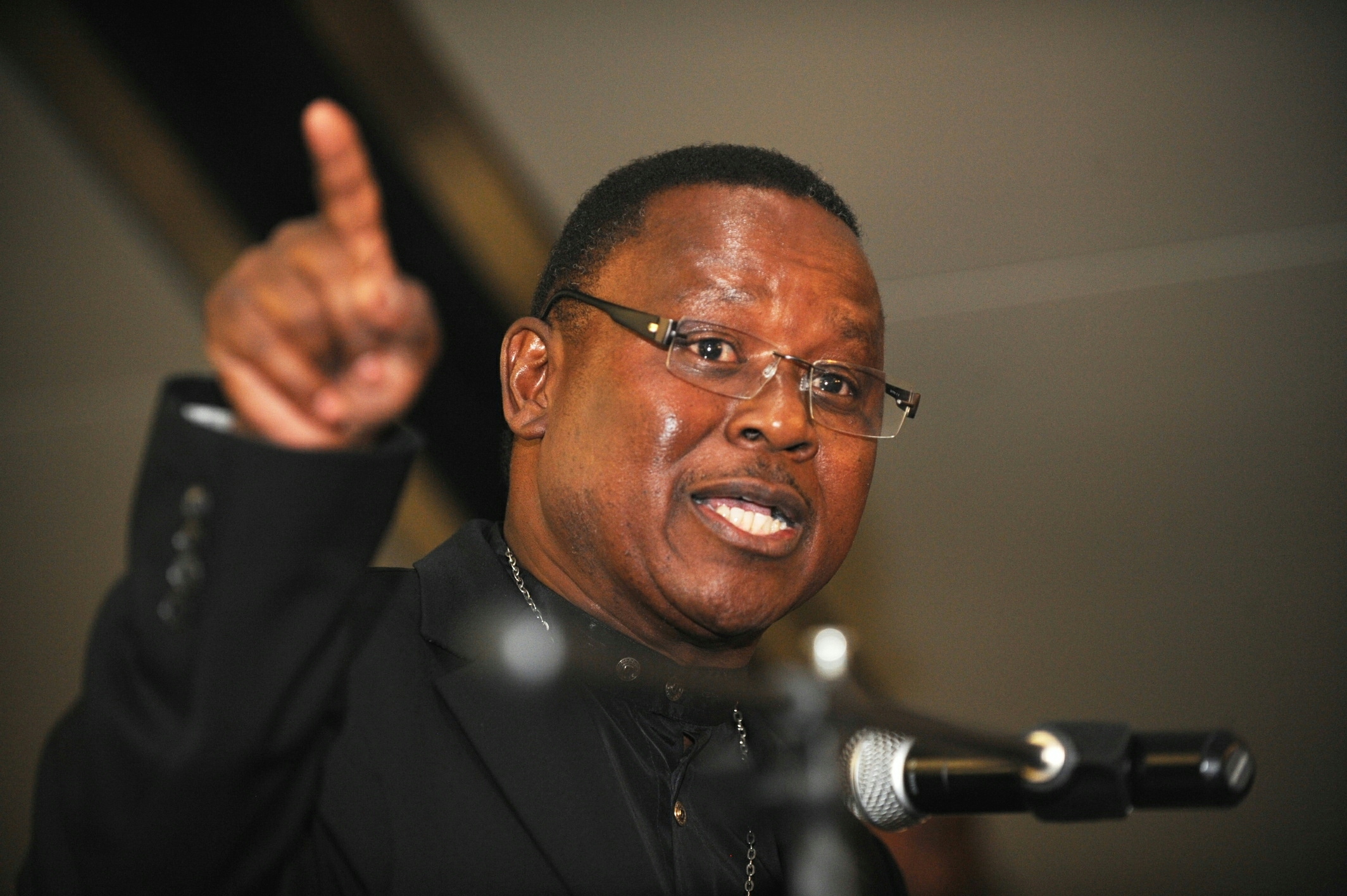
Reverend Frank Chikane at the launch of his book, Eight Days in September, in Johannesburg, South Africa, on 14 March 2012. (Photo: Gallo Images / Sunday World / Tsheko Kabasia)
That the ANC has done very little to deal with its implication is not the commission’s fault. The new chairperson of the party’s Integrity Commission, Frank Chikane, lamented recently that all those implicated by the Zondo inquiry have not voluntarily come before the body.
Turkeys never vote for Christmas, so it’s unlikely that the ANC will deal fittingly with all the recommendations in its locus of control. And I wouldn’t bet on seeing former president Jacob Zuma or the former Cabinet minister Malusi Gigaba, the two most prominent politicians fingered by the Zondo Commission, in the dock any time soon.
The reason for this is that they often worked through the boards they appointed, or middle persons like Dudu Myeni in the case of Zuma. There is no crime called “State Capture” and Zondo recommended the introduction of a criminal statute for abuse of power precisely because there is a lacuna in the law.
But the duo’s political careers are dead. Zuma, for example, is now marching about as the chairperson of the South African National Civic Organisation, a moribund formation. Gigaba’s dreams of being president are eviscerated.
It would also be wrong to say that the National Prosecuting Authority (NPA) has done nothing. Its Investigating Directorate is investigating 34 State Capture-related cases. It has secured R7.18-billion in restraining orders – a small percentage of the fiscal damage of capture, but significant in real terms. It has worked with the South African Revenue Service to enrol eight tax cases, and 10 with the Asset Forfeiture Unit.
The directorate lost its first State Capture case, the Free State Nulane matter, in a damning judgment.
But now that it is being made a permanent structure and has better resources, thanks to a partnership with the private sector, better prosecutions are likely, says the NPA in its latest annual report.
Key NPA successes
One year on, what is clear is that State Capture 2.0 is under way. Despite the Zondo Commission, the work of the NPA and the heightened consciousness of South Africans, the methods of patronage systems in the state and state-owned enterprises, using the procurement budgets that are now at more than R1-trillion, have intensified.
At Eskom, former CEO André de Ruyter said that he believed R1-billion was lost monthly to the extractive networks arranged around coal and fuel oil purchases, as well as the utility’s general procurement budget.
The murder of Babita Deokaran after she started questioning purchasing patterns at a single Gauteng hospital and the subsequent work of News24 reporter Jeff Wicks have shown the health system is another node.
The Digital Vibes spending on public health communication budgets that ensnared former health minister Zweli Mkhize is further proof. The Covid-19 emergency procurement scandal is calculated at R15-billion. We could go on.
What this first anniversary of the release of the Zondo Commission report shows is that, as Zondo said, his inquiry dealt only with the tip of the iceberg.
But what is clear now is that corruption is being revealed more quickly because investigative journalists, civil society and institutions like the Special Investigating Unit, the Auditor-General and the NPA understand State Capture and its methods. It’s a step in the fight against corruption, but only step one.
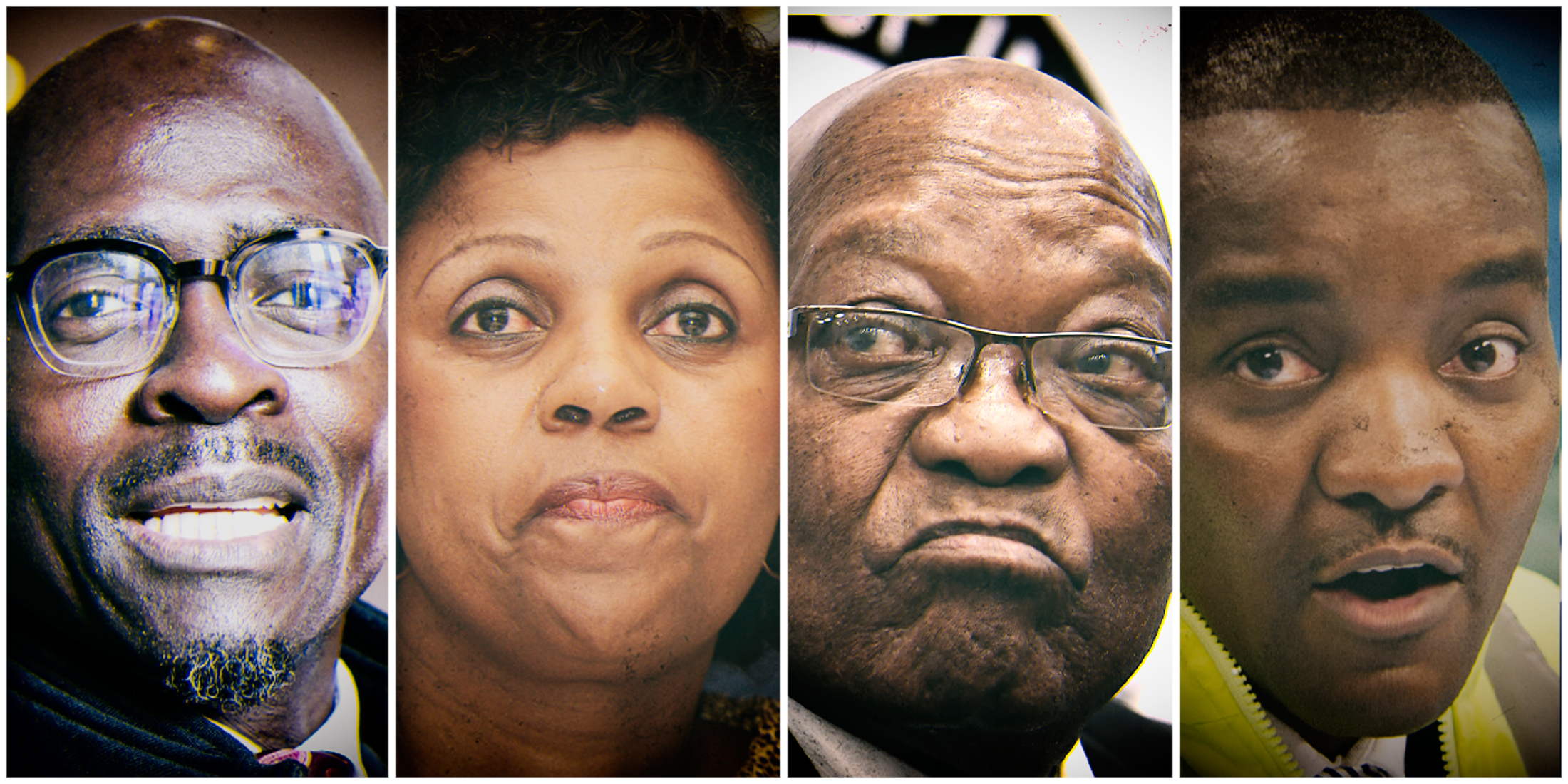
Malusi Gigaba. (Photo: Gallo Images / Sharon Seretlo) | Dudu Myeni. (Photo: Gallo Images / Veli Nhlapo) | Jacob Zuma. (Photo:Felix Dlangamandla / Gallo Images) | DM Mthimkhulu. (Photo: Deaan Vivier / Gallo Images)
Key NPA highlights
The following corruption cases involving State Capture and municipal and government officials were enrolled or finalised in 2022/2023:
State v Y Moolla: KwaZulu-Natal (KZN) Division
The accused was sentenced in the Durban Specialised Commercial Crimes Court (SCCC) to 15 years’ imprisonment after he pleaded guilty to 3,799 counts of fraud and multiple counts of contravening the Banks Act, and the Financial Advisory and Intermediary Services Act.
State v SD Shabalala: KZN Division
The former head of KZN’s treasury was sentenced to 15 years’ imprisonment for fraud, corruption, money laundering and contravening the Public Finance Management Act.
State v Mlandu Mabija: Western Cape Division (WCD)
The accused was convicted in the SCCC on 290 fraud charges to the value of R374,363.32. He was sentenced to eight years’ imprisonment.
State v DM Mthimkhulu: Gauteng Local Division (GLD)
The former head of engineering services at the Passenger Rail Agency of South Africa (Prasa) was convicted on three counts of fraud by the Johannesburg SCCC sitting in Palm Ridge.
State v Booth and Welgemoed: Mpumalanga Division
The Nelspruit (Mpumalanga) SCCC convicted the accused and sentenced them to eight years’ imprisonment after they pleaded guilty to corruption.
State v Valero David and Others: GLD
The accused were convicted of fraud and collectively sentenced to 36 years’ imprisonment. (Source: NPA Annual Report)
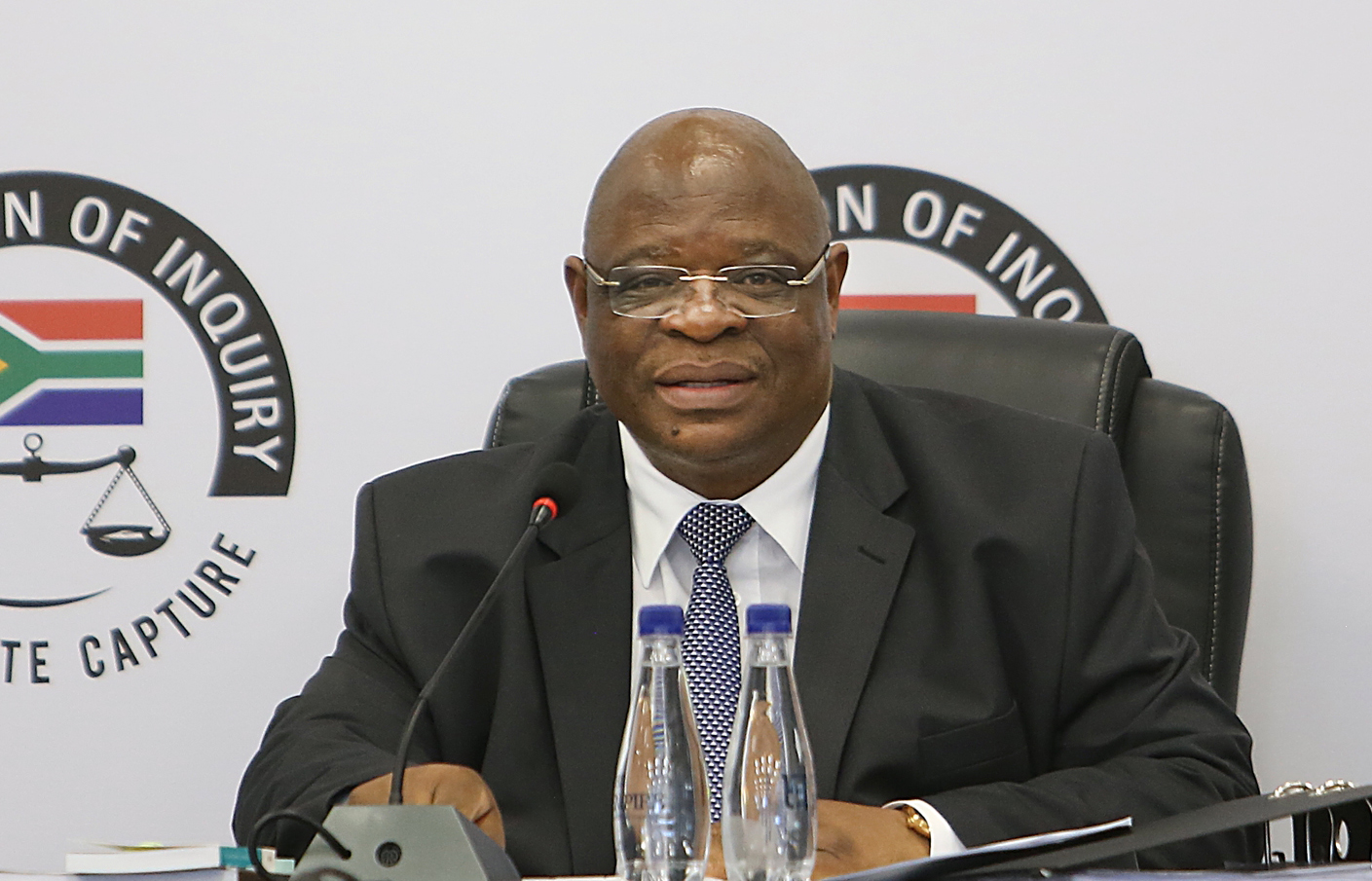
Deputy Chief Justice Raymond Zondo presides over the judicial commission of inquiry into State Capture on 20 August 2018 in Johannesburg, South Africa. (Photo: Gallo Images / Sowetan / Alon Skuy)
‘It’s up to the people now,’ says Judge Zondo
Chief Justice Raymond Zondo, who chaired the Commission of Inquiry into State Capture, has said South Africa needs leaders who are intolerant of corruption.
“The people must take their destiny in their hands and say ‘never, never and never again’,” he said at a Human Sciences Research Council (HSRC) colloquium to mark the first anniversary of the handover of the commission’s report to President Cyril Ramaphosa.
The question put to him: Has the capture of the state placed our democracy at risk? “An unequivocal yes,” he said. “I’ve seen nothing that has changed.”
Zondo highlighted sections of his report that found the National Assembly had stopped an earlier inquiry into State Capture after the release of former Public Protector Thuli Madonsela’s initial report. He said it was difficult for Parliament to be an authentic site of accountability until electoral reforms were passed to make political leaders accountable to their constituents and not only to party leaders.
Parliament was indignant at Zondo’s comments and said it was crucial it be afforded the “necessary space to fulfil its obligations”.
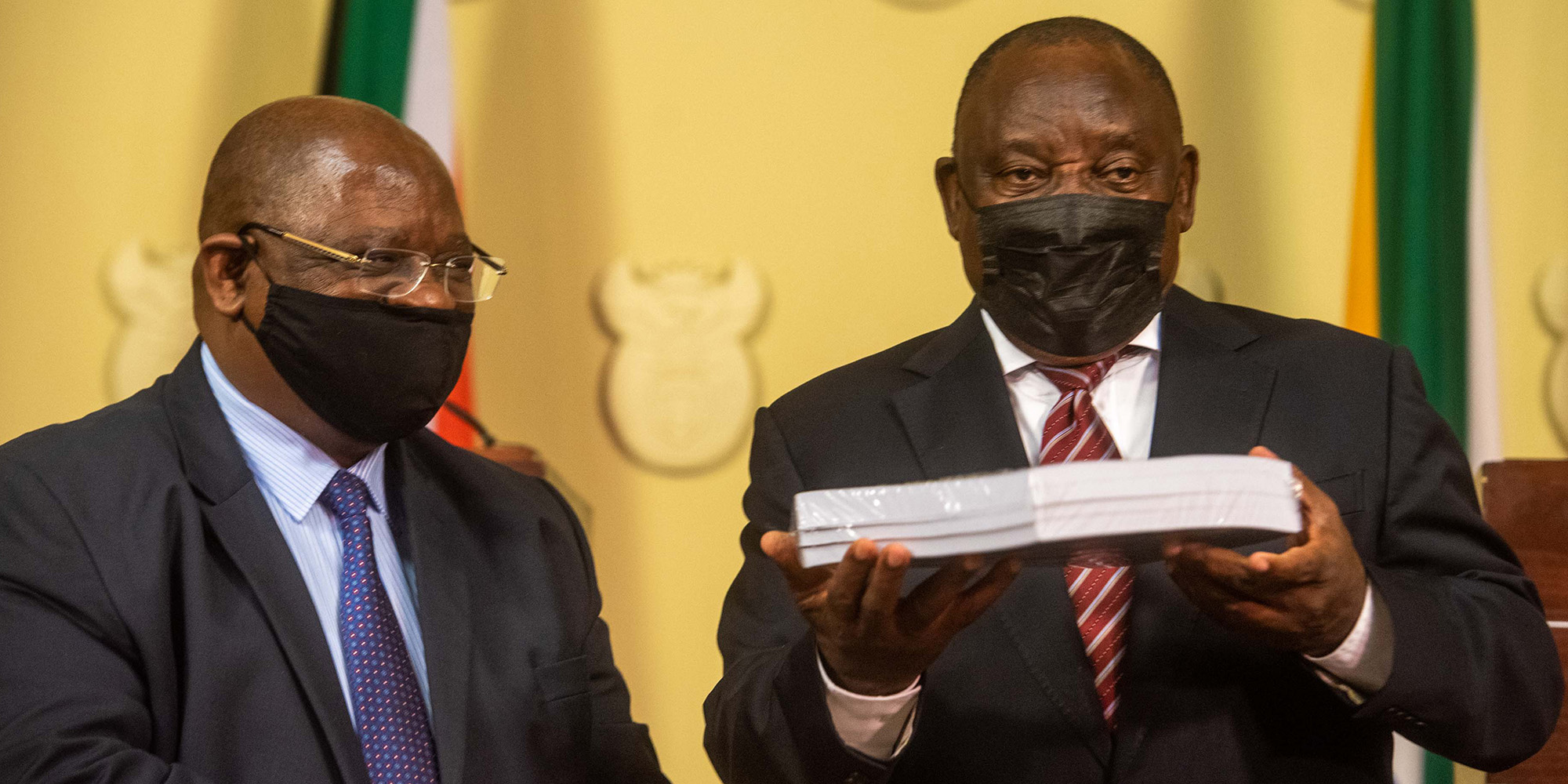
President Cyril Ramaphosa receives the first part of the report of the Judicial Commission of Inquiry into Allegations of State Capture from the commission’s chairperson, Chief Justice Raymond Zondo. (Photo: Alet Pretorius)
Zondo repeated his finding that South Africa needed a standing anti-corruption commission like a permanent version of the anti-graft inquiry he chaired for three years. Ramaphosa has appointed an advisory body to decide on this. He said such a permanent body would allow transparent investigations into corruption. He said his report, voluminous at 5,500 pages, had still only dealt with the tip of the iceberg of theft from the state.
“South Africa does not need leaders who are tolerant of corruption,” Zondo said.
An HSRC social attitudes survey found that 62% of a representative sample of South Africans believed that “quite a lot” of or “almost all” politicians were involved in corruption. Alarmingly, 49% reported that a government official had asked them or a close family member for a bribe or favour. About a third of the sample had moderate or high knowledge of State Capture whereas four in 10 had “no knowledge”.
“Equal shares of the public rated the commission poorly and favourably on evidence gathering in 2021 (the last year it sat in public hearings), but poor evaluations increased between 2021 and 2022,” said Ben Roberts and Ngqapeli Mchunu of the HSRC.
“Satisfaction with the commission’s performance seems to be associated with its effectiveness in tackling crime and corruption,” the researchers found.
Effectiveness tallied with prosecutions (or the need for “orange overalls” in everyday conversation), meaning that the Zondo Commission’s work has now been passed to the National Prosecuting Authority. (The latest account of its progress in State Capture cases is in the chart.)
Advocate Gary Pienaar of the HSRC audits the commission’s recommendations and notes progress in the following areas:
- Lifestyle audits have started;
- The National Framework Towards the Professionalisation of the Public Sector was tabled at Cabinet in October 2022;
- Several public administration laws are being changed regarding how public servants are employed and what their levels of accountability are;
- A prohibition on civil servants doing business with the state has been passed; and
- Parliament is planning a study tour to understand how to establish a committee to exercise oversight of the President and Presidency.
In other vital areas, there is no reportable progress yet. No politicians in the commission’s report have faced any consequences because a recommendation to create a statutory offence for abuse of power is not yet out of the starting blocks.
Zondo recommended that “… government give consideration to the creation of a statutory offence rendering it a criminal offence for any person vested with public power to abuse public power vested in that person by intentionally using that power otherwise than in good faith for a proper purpose”.
The judge said that the commission had located State Capture not in all three arms of the state but primarily in the abuse of power by the head of state (former president Jacob Zuma) to advance the interests of the Gupta family. He reminded the colloquium that “… where a president no longer makes decisions [in the interests of the people], it undermines the country and impacts democracy”. DM
This story first appeared in our weekly Daily Maverick 168 newspaper, which is available countrywide for R29.


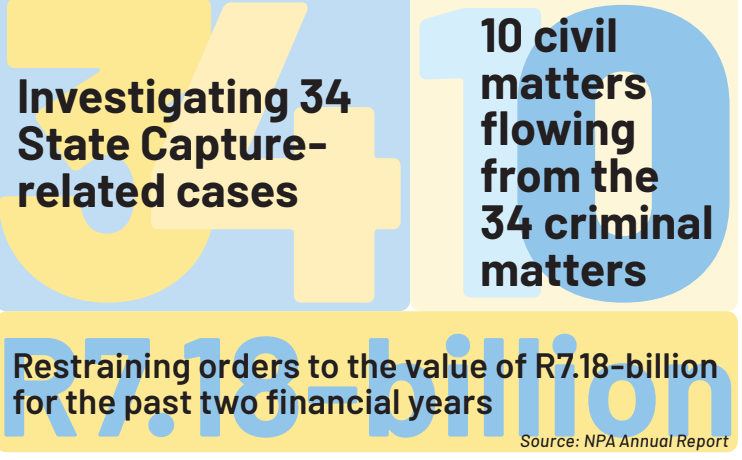



















 Become an Insider
Become an Insider
How could anyone who has read de Ruyter’s book still believe in an iota of hope for South Africa? The system is set up to fail. In that way, the little inner circle of the ANC prospers. Anything that opposes that will be destroyed.
I do. Why? Because there are many more people out there in local, provincial and national government and in SOEs etc who are doing their jobs well than there are skebengas, thieves and crooks. I know some of them.
I can only hope you are right.
Those sentences look like a slap on the wrist. Surely they should be 15 years per count of corruption? Eg, Moolla should have been punished with (15 * 3799 =) 56,985 years in jail.
Yes Mike. I can not understand sentences running concurrently. It is a farce and travesty of justice. Just like being jailed and not earning your keep is a travesty of justice. Criminals should be forced to work for their accommodation and food. Hard labour, like building roads, if necessary.
I absolutely understand your point but prison Labour in a country with high unemployment conflicts with real jobs. I’m perfectly fine with them in prison and doing nothing. Being forced to do nothing is hard on them. It’s not like they are at the beach
From the report above the Zondo Commission findings have barely started. State Capture 2.0 is now firmly in the public domain and from my googling Pravin Gordan first made mention of this in early July 22“There are people amongst us, and perhaps outside as well, who perhaps don’t want these SOEs to find themselves on the right track, because they would like to explore the possibility of state capture version two,” Gordhan said. Advocate Paul Pretorius referred to State Capture 2.0 at Gibbs lecture in February 23 and after that the Eskom Mafia was in the public eye and everyone jumped on the bandwagon. Unfortunately connect the dots Pravin became villain with his comments about “In order to pursue the greater good, you have to enable some people to eat a little bit,” is what Eskom’s former CEO, André de Ruyter, said a senior government minister had told him. State Capture was continuing at Eskom and Pravin was in charge. A circular reference appears here.
Honestly just watching the behaviour of politicians in Parliament, throwing insults and chairs at each other, erases every iota of hope that they could ever be in a position to oversee anything, whilst they call each other ‘honourable’ so and so.
“A prohibition on civil servants doing business with the state has been passed“ maybe but it has not stopped anything, they now get brothers and sisters involved to do their dirty work.
That’s the anc – all talk and no action. You can’t “do something” while stuffing your face and pockets and bank accounts while eating at the trough.
According to the Constitution we have a right to expect effective, efficient, and honest Government at all levels, Municipal, Provincial and National. The checks and balances exist to hold all levels of government to account, but they thumb their noses at those daring to question their deficiencies and or negligence in not doing their work. We need to find points of focus within the rights of citizens defined in the Constitution to rein in all non-performing public sector office holders and force change. Please could Chief Justice Raymond Zondo be asked to comment on what mechanisms are available to ordinary Citizens to take on individual public sector officials that are not meeting the base standard of simply “doing their jobs”, to task. Paul Holden may also have a useful commentary on this. A Constitutional Democracy that has no mechanism available to enable this is just a dusty book of unimplementable good intentions. Alternatively we need smaller Government. The private sector has many ills, but as revealed by the last 20 years, much less than state/public sector control. Things work, services get delivered, generally less wastage, more efficiency. Regrettably, this scenario will not find support with South Africa’s masses indoctrinated with entitlement. Best political option, albeit very unlikely – the moderate end of the ANC and those supporting morality, split and join the DA. More ANC rule, corrupt party ahead of Country, with or without EFF will bring more disaster.
South Africans MUST DEMAND changes in how we vote next year. We should vote for someone in a particular constituency – preferably someone we know.
I agree fully with you. Let those corrupt thieves work. Hard labour.
That those parliamentarians dared to wag their dirty fingers at Judge Zondo for stating that they haven’t implemented the Commission’s recommendations is arrogant beyond words. How dare they? We paid more than a billion Rands for the State Capture report, we pay salaries. Of course he has every right to demand that you do your jobs. Try doing so with urgency.
It’s not only State Capture 2.0 that needs a permanent change in laws etc to prevent. We also need laws to punish incompetence, failure to act, and to ensure accountability for every public servant act etc. The reason City Power of Johannesburg Water, for example, can get away with their appalling “service” is because no-one is ever held accountable.